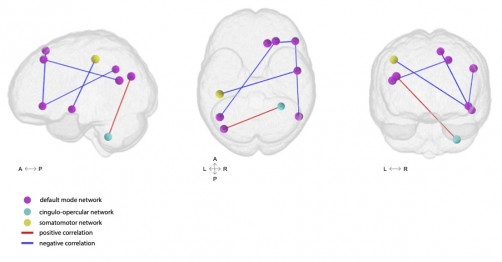A groundbreaking five-month study tracking one individual’s brain activity and behavior has uncovered how our daily habits can have prolonged impacts on brain function, potentially influencing attention, memory, and cognitive flexibility for days or even weeks.
Summary: Research from Aalto University and the University of Oulu shows that brain activity evolves in response to sleep, exercise, and mood over extended periods, suggesting last week’s activities could still affect your brain function today.
Estimated reading time: 6 minutes
In a world where we often seek quick fixes and immediate results, a new study offers a compelling reminder that our brains operate on a different timescale. Researchers from Aalto University and the University of Oulu have conducted a rare, longitudinal study that tracked one person’s brain and behavioral activity for five months, revealing that the impacts of our daily activities on brain function can last much longer than previously thought.
The study, set to be published in PLOS Biology on October 8th, utilized a combination of brain scans, wearable devices, and smartphone data to paint a comprehensive picture of how everyday experiences shape our brain’s functional connectivity over time.
The Ripple Effect of Daily Life on Brain Function
“We wanted to go beyond isolated events,” says research leader Ana Triana. “Our behaviour and mental states are constantly shaped by our environment and experiences. Yet, we know little about the response of brain functional connectivity to environmental, physiological, and behavioral changes on different timescales, from days to months.”
The findings suggest that our brains do not respond to daily life in immediate, isolated bursts. Instead, brain activity evolves in response to sleep patterns, physical activity, mood, and respiration rate over many days. This means that a workout or a restless night from last week could still affect your brain — and therefore your attention, cognition and memory — well into the following week.
One of the most intriguing discoveries was the strong link between heart rate variability — a measure of the heart’s adaptability — and brain connectivity, particularly during rest. This suggests that impacts on our body’s relaxation response, such as stress management techniques, could shape our brain’s wiring even when we’re not actively concentrating on a task.
Two Waves of Brain Response
The researchers identified two distinct response patterns in brain activity:
- A short-term wave lasting under seven days, reflecting rapid adaptations like how focus is impacted by poor sleep but recovers quickly.
- A long-term wave lasting up to fifteen days, suggesting more gradual, lasting effects, particularly in areas tied to attention and memory.
These findings highlight the complex interplay between our daily activities and brain function, emphasizing the importance of consistent healthy habits for optimal cognitive performance.
Implications for Personal Health and Research
This study’s unique approach — combining brain scans with real-world data from wearable devices — opens up new possibilities for understanding and improving mental health care.
“We must bring data from daily life into the lab to see the full picture of how our habits shape the brain, but surveys can be tiring and inaccurate,” says study co-author, neuroscientist and physician Dr. Nick Hayward. “Combining concurrent physiology with repeated brain scans in one person is crucial. Our approach gives context to neuroscience and delivers very fine detail to our understanding of the brain.”
The implications of this research extend beyond academic interest. Triana suggests that “Linking brain activity with physiological and environmental data could revolutionize personalized healthcare, opening doors for earlier interventions and better outcomes.” This approach could potentially help detect neurological disorders early, especially mental health conditions where subtle signs might be missed.
Challenges and Future Directions
While this study provides valuable insights, it’s important to note its limitations. As a single-subject study, the findings may not be generalizable to the broader population. However, it serves as a proof-of-concept for future research that could combine brain data with everyday life to help personalize mental health treatment.
The study also raises interesting questions about the long-term effects of our lifestyle choices on brain health. If a week of good sleep and exercise can positively influence our brain function for the next two weeks, what might be the cumulative effects of months or years of healthy habits? Conversely, how might chronic stress or poor sleep patterns impact our cognitive abilities over time?
As wearable technology becomes more sophisticated and accessible, studies like this one pave the way for a future where we might be able to track and optimize our brain health in real-time, making informed decisions about our daily habits based on their long-term cognitive impacts.
Quiz
- How long did the brain activity tracking study last? a) One month b) Three months c) Five months d) One year
- What was the longest duration of the “long-term wave” of brain response identified in the study? a) Seven days b) Ten days c) Fifteen days d) Thirty days
- Who was the subject of this longitudinal study? a) A group of volunteers b) The lead researcher c) A patient with a neurological disorder d) A randomly selected participant
Answers:
- c) Five months
- c) Fifteen days
- b) The lead researcher
For further reading:
Glossary of Terms
- Longitudinal study: A research method involving repeated observations of the same variables over long periods of time.
- Brain functional connectivity: The synchronization of activity between different brain regions.
- Heart rate variability: A measure of the variation in time between each heartbeat.
- Wearable devices: Electronic devices worn on the body that collect various physiological and movement data.
- Cognitive flexibility: The brain’s ability to adapt to new situations and switch between different tasks.
- Neurological disorders: Diseases of the nervous system, including the brain, spinal cord, and nerves.
Enjoy this story? Get our newsletter! https://scienceblog.substack.com/


